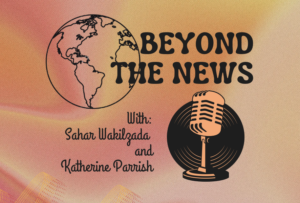I would not consider myself a particularly patriotic person. I have some deep-seated issues with this country, including but not limited to the inequalities upon which it was built, the hegemonic role it plays on the international stage, and the bureaucratic structure that makes transformative change nearly impossible. I just might be the least patriotic person I know. I can remember feeling truly patriotic only twice in the last year: during the Olympic season (obviously) and more recently, when attending the National Symphony Orchestra’s free Labor Day Concert on the West Lawn of our nation’s Capitol building. What gave these events the power to genuinely move me and make me feel so connected to my country, despite my fundamental disagreement with its actions?
At the National Symphony Orchestra Concert, chills ran down my arms listening to a narrator read out one of JFK’s speeches while the orchestra bowed their instruments to “Festivities” in perfect precision and harmony. As the song played, I watched a mother dance with her toddler against the backdrop of the Capitol building. I couldn’t help but smile. I, along with everyone else in the crowd, danced “The Hustle” alongside the Symphony’s orchestration, having too much fun to care if we stepped on each other’s toes or knocked over our soda cans. We clapped along to a local beatboxer, “Christylez Bacon,” freestyling about life in DC. It was a near-perfect night. And it made me feel like a patriot. But why?
Something must be said about watching others perform at a high level, which also explains my reaction to the Olympics. Beyond that, did I simply fall victim to the old American “propagandist music” scheme? I think it’s more than that. The more I reflect, the more I realize I don’t feel any kind of loyalty to the state itself. The collective effervescence evoked by means of “orchestra concert ft. line dance” on the Capitol Lawn wasn’t enough to make me forget about my ideological issues with the government. Still, it did give me genuine hope for the future of our country. And that’s because it was my community that I felt connected to.
This reflects a much-needed change that’s starting to occur within the culture of the political left and the younger generation: we need our conversations to start from a place of love for our communities and hope that we can change them for the better, rather than the cynicism and constant negative critique I keep seeing amongst young progressives. Negative criticism is vital to make change, as we need to identify things that need changing. However, in many spaces, it almost feels like these pessimistic views come from individuals trying to seem like the most serious, intellectual, and knowledgeable person in the room, rather than out of a desire to find the root of the problem and help make things better.
A political culture of hopelessness, despair, and cynicism, while it may be warranted or realistic given the state of the world, is not productive; it’s fatalistic. I’m not advocating for naïvety. I know we can’t dismantle capitalism or defund the military just because we believe in the power of community. What I am advocating for is working within the system for the betterment of communities we care about and the spaces we cultivate and share, while advocating for more transformative change in the long run. We can get to know our neighbors, vote in local elections, and talk about steps that can better people’s lives in tangible, if small, ways that will lead to systemic change. As one of my favorite professors always said, “Domination is never total.” The only way we can keep going in a system that was founded on and continually reproduces inequality is by looking for those glimmers of hope through genuine human interaction. It is through these relationships that we can create solidarity and pursue real, structural change. Hopelessness only takes away our collective power.
This is a large part of the reason that the Harris-Walz campaign has reached the younger generation—the generation that has grown up with the general opinion that the world is going to hell. College students learn that the best way to be intellectual and progressive is to look for things to constantly criticize. Again, there is nothing wrong with pointing out inequalities and the government’s wrongdoing, but it can’t come from a place of trying to appear intellectual. Rather, it must come from a place of love for our community. And it can’t end there. This democratic presidential campaign has gotten my generation excited about voting because it has created a political culture of hope and unity. They’ve had musical performances at the DNC and their rallies, fostering a joyous environment that brings people together, much like that National Symphony Orchestra concert did for me.
As I’ve been pondering the political culture in our country, I keep coming back to this quote from bell hooks’ work All About Love: New Visions, which she wrote about self-love and acceptance but which applies just as well to this topic:
“There is a voice inside that is constantly judging, first ourselves and then others. That voice enjoys the indulgence of an endless negative critique. Because we have learned to believe negativity is more realistic, it appears more real than any positive thinking. Once we begin to replace negative thinking with positive thinking, it becomes utterly clear that, far from being realistic, negative thinking is absolutely disenabling. When we are positive we not only accept and affirm ourselves, we are able to affirm and accept others.”
I’m advocating a shift in the political culture of the left. Negative thinking and pretentiousness do not create real change. They only break down communities and create divisions. We need to adopt what hooks would call a “love ethic,” where we genuinely care about the communities we are trying to better, rather than grandstanding to seem like the “wokest” in the room. Only then can we build real solidarity and make real change. And I think we’re headed in the right direction.







